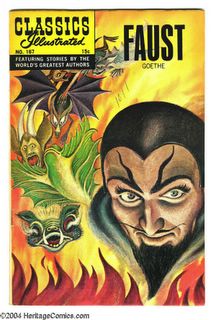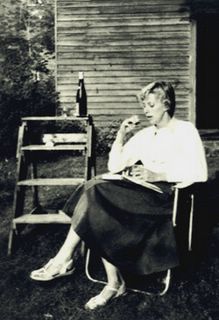
the winter issue of
Fascicle has lots of work by the likes of Lee Ann Brown, Brenda Iijima, etc etc including this poem by Brenda Coultas from "The Abolitionist's Journal"--
"The Bluegrass State
Although they are called the Bluegrass
state, they are better known for their
weed. You can buy any kind of drug in
most factory parking lots.
There are drive thru liquor stores and
dry counties in Kentucky.
They have bluegrass music and a radio
show called Old Scratchy records. Bill Monroe and the Shady Boys lived there.
Daniel Boone brought the first slaves to
Kentucky.
Kentuckians roller-skate in old tobacco
barns and frequent the "World's Largest
Thrift Shop" in Louisville. Everyone
strips tobacco in Kentucky.
They know barbecue and horses in
Kentucky.
Wendell Berry, a poet, is from
Kentucky.
The shakers built a round barn in
Kentucky.
For heaven's sake, Kentucky is all that
separates us from Tennessee.
My husband tells everyone we are going
to Kentucky because people get very
excited about this idea called Kentucky.
I was a member of the Owensboro,
Kentucky Junior Coin club.
Johnny Depp and Richard Hell went to
high school in Kentucky.
I've never been to Rough River nor
Goldie's Opera House in Owensboro.
I attended the reburied of native
American graves in Kentucky.
There is a Paris, Kentucky. and a Paris,
Illinois.
Lilly Tomlin and Bobbie Ann Mason
are from Paducah.
Ashley Judd is from Ashville, Kentucky.
There are underground coal mines in KY
and strip mines in Indiana.
I like the strong labor unions of
Kentucky where everyone sits on
porches.
WC Handy was born in Henderson
where they fought to keep super Wal-
mart out.
John Jay Audubon lived with his slaves
in the wilds of Kentucky.
Josiah Henson escaped from
Yellowbanks (Owensboro) Kentucky.
Edgar Cayce and bell hooks are from
Madison.
I stayed at Land Between the Lakes
once, a huge man-made lake in a dry
county, near the Eddyville prison.
I had my collarbone set in Kentucky.
My mother had a hysterectomy in
Kentucky.
I know a man who calls it K-wacky.
They grow their fingernails
long and gouge out eyes. Brothers and
sisters and first cousins marry each
other. No one is a virgin. They bite off
ears and lips in barroom brawls in
Kentucky.
Disclaimer: I am sorry about all the
beans I spilled on Kentucky. You should
know that some of my family members
and friends are Kentuckians. "

















